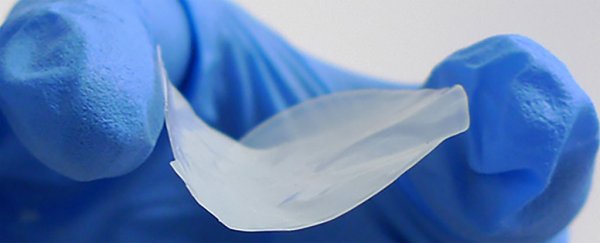Oil spills wreak unbelievable harm on coastal environments, with the damage bill from the BP oil spill in 2010 estimated to have cost US$40 billion in total – and that's not counting the pain and death inflicted on marine life and birds.
But a new highly absorbent sponge material developed by Australian researchers could help to dramatically reduce the impact of future spills, thanks to incredibly thin nanosheeting that can soak up a disproportionately large amount of oil.
"[C]urrent methods of cleaning up oil spills are inefficient and unsophisticated, taking too long, causing ongoing and expensive damage," said lead author Ying Chen of Deakin University. "We are so excited to have finally got to this stage after two years of trying to work out how to turn what we knew was a good material into something that could be practically used."
The researchers began working on an earlier version of the nano material back in 2013, creating a powdery substance that proved they were on the right track.
"This powder had absorption capabilities, but you cannot simply throw powder onto oil," said Chen, "you need to be able to bind that powder into a sponge so that we can soak the oil up, and also separate it from water."
It wasn't easy, but they succeeded with a production technique that involved breaking down the powder – made from boron nitride– into anatomically thin sheets, which can then be assembled into a sponge.
"The ground-breaking material is called a boron nitride nanosheet, which is made up of flakes which are just several nanometres (one-billionth of a metre) in thickness with tiny holes which can increase its surface area per gram to effectively the size of 5.5 tennis courts," said one of the team, Weiwei Lei. "The pores in the nanosheets provide the surface area to absorb oils and organic solvents up to 33 times its own weight."
In addition to its absorbency capabilities, the nanosheeting does not burn and can withstand flame, meaning it could also be useful for electrical and heat insulation tasks. The findings are published in Nature Communications.
Having now successfully developed the nanosheeting, the researchers intend to have their material trialled by industry partners, with the hope that their super-absorbent sponge will be used to reduce the impact of oil spill catastrophes in the future.
